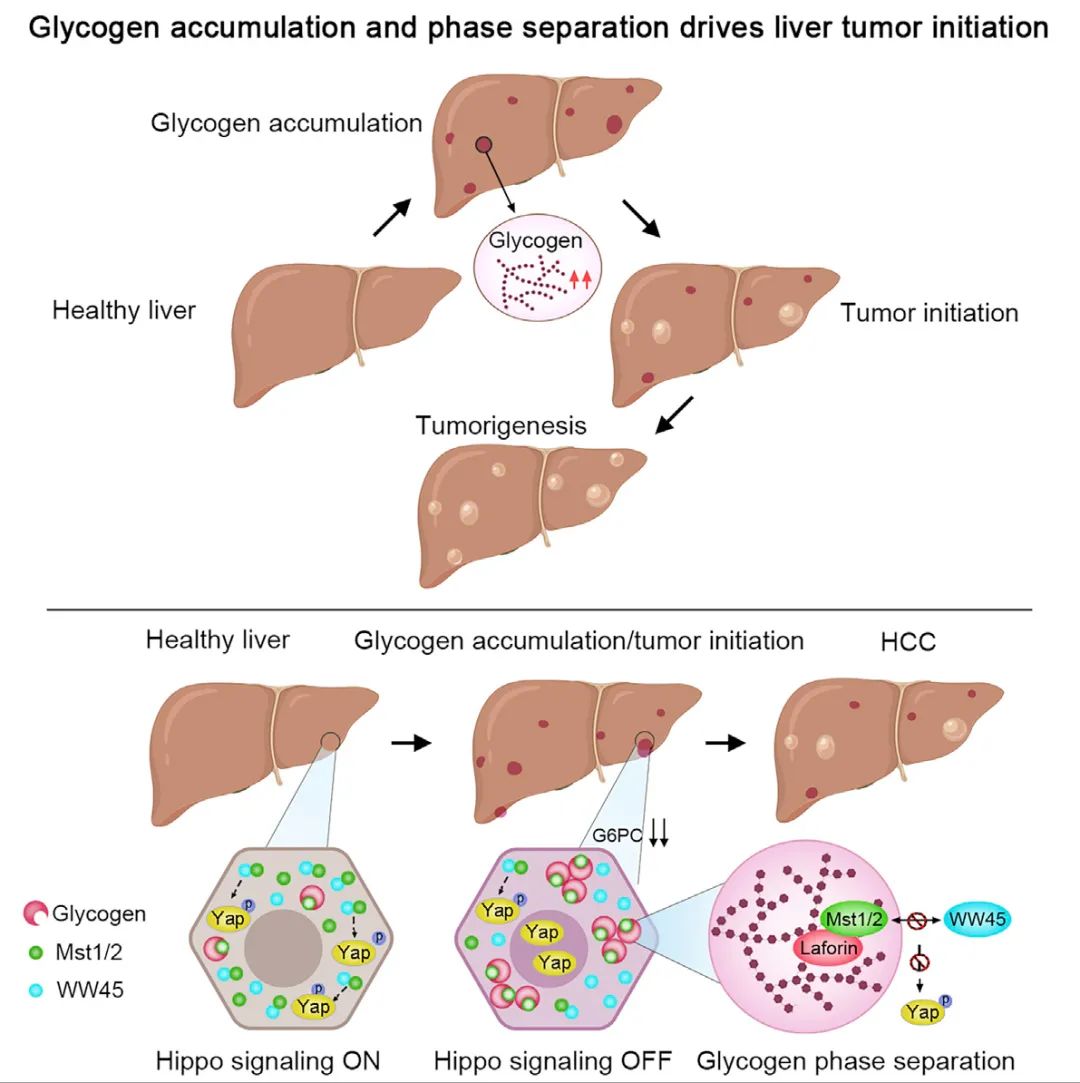
Cell. 2021 Oct 21.
doi: 10.1016/j.cell.2021.10.001.
Glucose consumption is generally increased in tumor cells to support tumor growth. Interestingly, we report that glycogen accumulation is a key initiating oncogenic event during liver malignant transformation. We found that glucose-6-phosphatase (G6PC) catalyzing the last step of glycogenolysis is frequently downregulated to augment glucose storage in pre-malignant cells. Accumulated glycogen undergoes liquid-liquid phase separation, which results in the assembly of the Laforin-Mst1/2 complex and consequently sequesters Hippo kinases Mst1/2 in glycogen liquid droplets to relieve their inhibition on Yap. Moreover, G6PC or another glycogenolysis enzyme-liver glycogen phosphorylase (PYGL) deficiency in both human and mice results in glycogen storage disease along with liver enlargement and tumorigenesis in a Yap-dependent manner. Consistently, elimination of glycogen accumulation abrogates liver growth and cancer incidence, whereas increasing glycogen storage accelerates tumorigenesis. Thus, we concluded that cancer-initiating cells adapt a glycogen storing mode, which blocks Hippo signaling through glycogen phase separation to augment tumor incidence.

